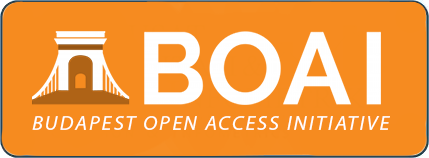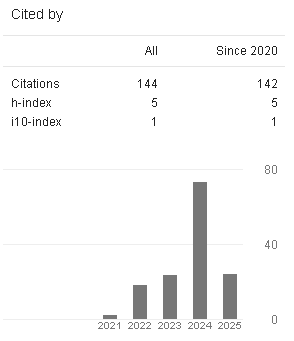The Islamic Foundations of Halal Food Gastronomy in Malaysia
Abstract
The current scenario is witnessing halal food culture being widely practised by Muslims and non-Muslim because of their confidence in its quality in terms of safety, hygiene, and nutrient composition. The availability of halal food becomes a positive factor in attracting tourists, whether at the domestic or international level, when selecting a travel destination. Recognise that, in this scenario, some authorities are interested in developing gastronomy tourism to provide a joyful experience for tourists. The purpose of this paper is to provide an overview of halal food culture and its relationship to the gastronomy field. Secondly, the researcher also attempts to identify the sources of halal food gastronomy from a Shari’ah perspective. To write this paper, library research has been conducted by reviewing secondary sources. The researcher has applied the thematic content analysis technique to analyse the selected library sources. The result signifies six primary sources of halal gastronomy, which are: Al-Quran, Al-Sunnah, Al-Ijma’, Fatwa, Al-Uruf, Al-Maslahah and Al-Dharuriyyat.
Downloads
References
Ahmad, K. (2019). Perspektif ilmu hadith dan nas terhadap makanan dan pemakanan Sunnah. Seminar Kefahaman Islam Mengenai Makanan Sunnah Dan Makanan Moden Institut Kefahaman Islam Malaysia (IKIM), (19-20 November), 19–20. Retrieved from https://www.ikim.gov.my/new-wp/wp-content/uploads/2019/11/KERTAS-2.pdf
Alias, M. N., Samari, M. A., A., Mokhtar, A., Irdha, Nik Abdul Ghani, N., A., R., Kamis, M. S., & Alias, N. (2021). A Review of Maslahah Mursalah and Maqasid Shariah as Methods of Determining Islamic Legal Ruling. Turkish Journal of Computer and Mathematics Education (TURCOMAT), 12(3), 2994–3001. https://doi.org/10.17762/turcomat.v12i3.1331
Al-Maqdisi, Abū Muhammad Muwaffaq Al-Dīn ‘Abdullah bin Ahmad bin Muhammad. (1996). Al-Muqni’ wa Al-Syarh Al-Kabīr wa Al-Insaf. (1st Ed.). Vol. 27. Giza: Dār Hajar.
Al- Quranul Karim Translation. Retrieved from July 9, 2022.
Apa itu Fatwa. (2022). Retrieved July 13, 2022, from Official Portal of Mufti Office Pulau Pinang website: https://mufti.penang.gov.my/index.php/2014-11-12-02-37-08/fatwa
Awang, A., & Che Mat, A. (2020). Sinkretisme Budaya dalam Kehidupan Baru Komuniti Mualaf [Cultural Syncretism in the New Life of the Mualaf Community]. BITARA (International Journal of Civilizational Studies and Human Sciences, 3 (4): 140-150.
Battour, M., Mady, K., Salaheldeen, M., Elsotouhy, M. & Elbendary, I. (2022). AI-Enabled Technologies to Assist Muslim tourists in Halal-Friendly Tourism. Journal of Islamic Marketing (2103030423). https://doi.org/10.1108/JIMA-01-2022-0001
Elgharbawy, A., & Azmi, N., A., N. (2022). How Eating Halal and Toyyib Contributes to A Balanced Lifestyle. Halalsphere, 2(1), 86–97.
Fadzillah, N., A., Sukri, S., J., M., Jubri, M., M., Mutalib, S., Rosman, A., S., Rohman, A., Kurt, N. (2020). Islamic and Modern Science Perspectives Issues of Animal Plasma as a Source of Food Additives in Food Products. International Journal of Advanced Research in Engineering and Technology (IJARET), 11(12), 283–305. https://doi.org/10.34218/IJARET. 11.12.2020.033
Hasbullah, M., Mahad Musa, Z., & Zakaria, M. Z. (2018). Konsep ’Uruf Menurut Pandangan Syarak: Sorotan Ringkas dalam Fiqh Muamalat. In H. Mushaddad, Z. M. Musa, & Z. M. Zaharuddin (Eds.), Isu-Isu Semasa Islam dan Sains (pp. 278–287).
Hashim, N., Ismail, K., Haji Yahya, S., & Hashim, H. (2019). Permasalahan Halal Dan Penyelesaiannya Di Kalangan Masyarakat Muslim Rumah Panjang Sarawak. Online Journal of Research in Islamic Studies, 6, 7–13. Retrieved from https://ejournal.um.edu.my/index.php/RIS/article/view/20733
Hussin, H. (2018). Gastronomy, Tourism, and the Soft Power of Malaysia. Original Research : SAGE Open, 8(4). https://doi.org/10.1177/2158244018809211
Ilhamy, M., L., Asmuni, & Anggreini, T. (2021). Kedudukan Sumber Hukum Islam Kedua Dalam Al Quran. Al-Kauniyah: Jurnal Ilmu Alquran Dan Tafsir, 2(1), 1–23.
Jafar, W. A. (2022). Legality of Halal Food Certification on Maslahah Mursalah Perspective. Jurnal Ilmiah (Mizani), 09(01), 73–87.
Joan, F., P., Nugroho, S., P., & Setiaji, Y. (2022). Traditional Moke Drinks as Gastronomy Tourism: An Exploratory Study. Undergraduate Conference on Language, Literature, and Culture (UNCLLE), 2(1 (April)), 368–375.
Mahyeddin, M. S., Mohammad, N., & Ahmad Fadzillah, N. (2020). Pewarna Makanan Dari Serangga Cochineal Menurut Perspektif Halal: Analisis Fatwa di Beberapa Negara ASEAN (Cochineal Food Coloring from Halal Perspective: A Fatwa Analysis in Several ASEAN Countries). Journal of Fatwa Management and Research, 19(1), 1–14.
Mohanty, P., P., Rout, H., B., & Sadual, S., K. (2020). Food, Culture and Tourism: A Gastronomy Trilogy Enhancing Destination Marketing, case study of Odisha, India. International Journal of Tourism and Hospitality in Asia Pasific, 3(1), 15–30. https://doi.org/10.32535/ijthap.v3i1.721
Mohd Faizal., Mohd Hairi, J., Wan Ismail, W., Amirul Hakim, Z., & Mohamad Farhan, A. (2022). A Taste of Bizarre Local Foods as Part of Terengganu’ s Food Tourism Experience. Journal of Ethnic Food, (July 13), 1–16.
Mohd Sukri, S.J., & Ahmad Fadzillah, N. (2020). Elements of Eating Morality According to Bediuzzaman Said Nursi’s Views: A Complementary to The Basic Concept of Food in Islam. AL-A’BQARI Journal of Islamic Social Sciences and Humanities, 23(1), 156–173.
Muhammad, S. M. (2017). Keperluan Tingkat Fiqh Kepenggunaan Berasaskan Maqasid Syariah. The Social Harmony Throught Islamic Law (ISLAC 2017, 1–13. TH Hotel & Convention Centre Terengganu.
Othman Jaludin, R., Saadan, M., & Baharuddin, M. (2018). Isu-Isu Halal Dalam Aplikasi Bioteknologi Terhadap Produk Farmaseutikal Terpilih. Jurnal Islam Dan Masyarakat Kontemporari, 2018(19), 82–101.
Sahin, E. (2022). A bibliometric overview to where is gastronomy research evolving? International of Gastronomy and Food Science, 28 (June).
Siti Jamilah, M., S., Nurrulhidayah, A., F., Azura, A., Mat Jubri, S., M., Rohman, A., Nur Azira, T., & Rashidi, O. (2021). Issues related to animal blood into food products: a review paper. Food Research, 5(June), 12–21.
Tayob, S. (2020). Muslim Food Culture. Oxford Research Encyclopedia of Anthropology, (April 2020). https://doi.org/10.1093/acrefore/9780190854584.013.131
Yousaf, S., & Xiucheng, F. (2018). Halal Culinary and Tourism Marketing Strategies on Government Websites: A Preliminary Analysis. Tourism Management, 68, 423–443.
Downloads
Published
How to Cite
Issue
Section
License
Copyright (c) 2025 RABBANICA - Journal of Revealed Knowledge

This work is licensed under a Creative Commons Attribution-NonCommercial 4.0 International License.












